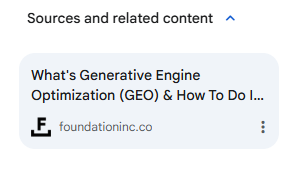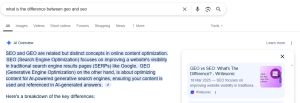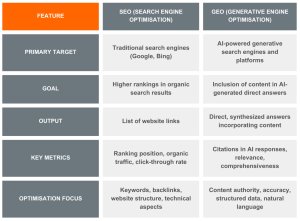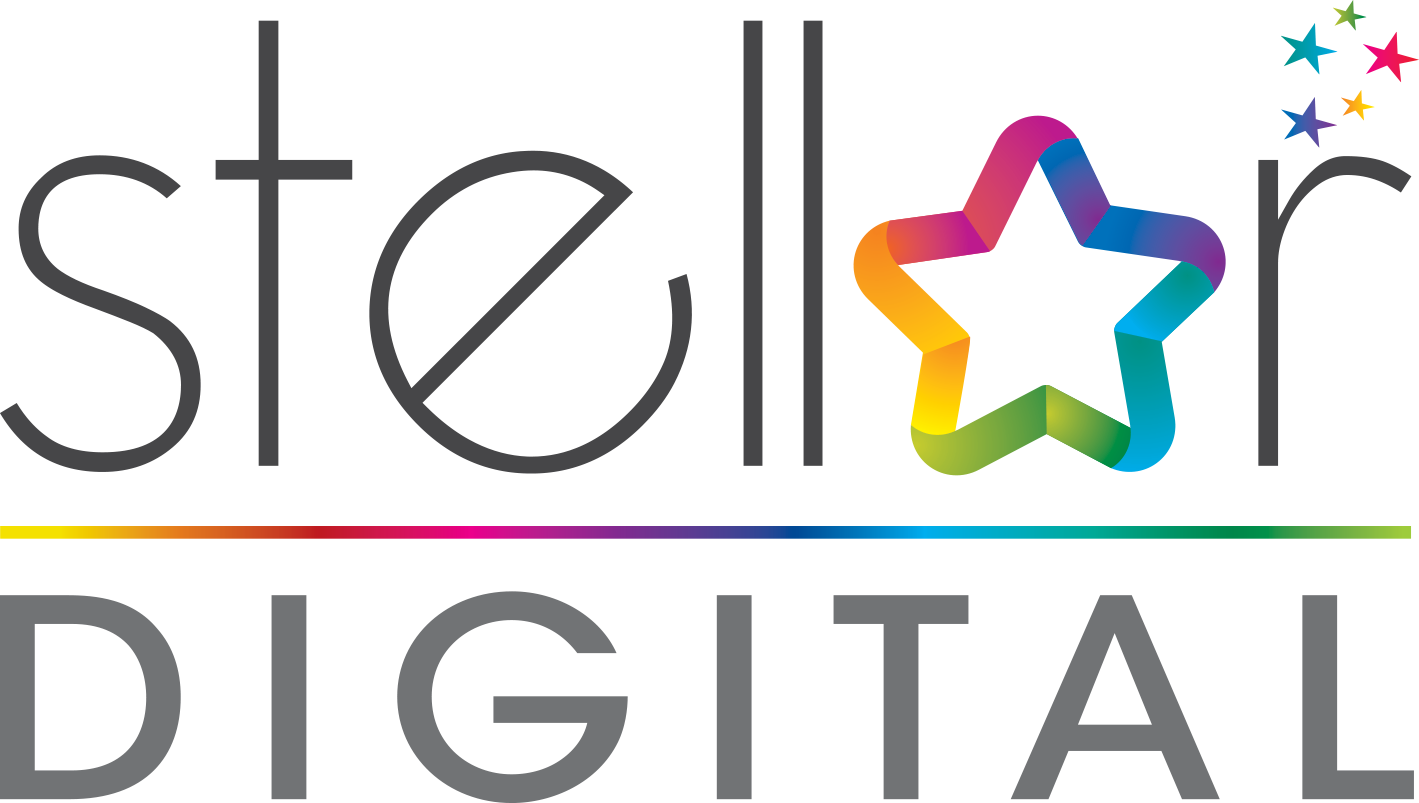GEO (Generative Engine Optimisation) is the newest buzzword in the digital marketing world.
Forbes branded it as “the future of search” in 2025, and to be honest, they’re not wrong.
What GEO represents is a significant evolution in digital marketing that will affect your future as a website owner.
With the rapid advances in the power and reach of AI not showing any signs of slowing, focusing on refining website content to achieve greater prominence within AI-powered search engines and platforms (i.e. Google Gemini and OpenAI’s ChatGPT) has become a necessity.
As a digital marketer, it’s now your job to recognise the importance of this emerging field and strategically incorporate GEO into your website and digital marketing in order to excel in the modern, AI-driven world.
So… what exactly is GEO?
I asked Google Gemini, a generative AI platform, to define GEO, and it spat this out:
“Generative Engine Optimisation (GEO) is the practice of refining website content to be recognised and utilised as a trusted source by AI-powered search engines and platforms for generating direct answers to user queries.”
More importantly, it gave this as a source:
This is GEO in action. Because the owners of Foundation Marketing strategically align their content for GEO, the AI offered their article as a source. This is just one reason why you need to start paying attention to your website’s GEO.
How is GEO different from SEO?
The key difference is in the target of the optimisation. Whereas an SEO expert would optimise a website for enhanced visibility, an expert in GEO optimises for AI-powered platforms and search engines.
In the screenshot below, you want to be in Write Sonic’s position as an authority on the user’s search:
Think of it this way: SEO helps your website show up higher on regular search lists so people click on it, while GEO helps your website’s information become the go-to answer that AI tools directly provide to people, sometimes without them even needing to click on a website.
While we’re talking about SEO… if you’re having a hard time getting people to your website or even showing up in the search results, talk to us and optimise your website.
Key differences between GEO and SEO
How can I implement GEO as a digital marketer?
You may now be saying to yourself, “I know what GEO is, I know how it’s different from SEO, but how do I actually do it?”
Luckily, any experience you have in SEO will carry over into the realm of GEO. Knowing how to create high-quality, informative content, how to find and implement relevant keywords, and how to optimise for website crawlability are all going to be useful in implementing GEO.
Strategies for GEO
Below are just some of the strategies you will need as a digital marketer to get a firm grip on GEO.
Website content strategies…
Optimising your written content for AI
-
- Writing with natural language
It’s a simple fact that AI algorithms favour content written to sound natural. Over 1 in 5 people worldwide don’t type their search queries — they speak them. Therefore, writing in a way that mirrors how we speak is essential for getting picked up by generative AI algorithms. - Addressing user intent
Whether it’s a Google or OpenAI engine/platform, AI runs with the goal of addressing its user’s question or query. If it doesn’t do this, people won’t use it. Because of this, you should share this goal and write with the user’s intent in mind. Understand your target audience, their searches, and the information, products, or solutions they are looking for, and then answer their questions. - Writing with authority and credibility
Generative AI prioritises information from trusted sources. Back up your claims with reputable data, cite your sources clearly, and use industry-standard language. Demonstrate your expertise on the topic to signal to the AI that your content is reliable and worth including in its responses.
- Writing with natural language
Need help creating social media content in a way that satisfies the AI algorithms? We’re experts at content management.
Technical optimisation strategies…
Structuring your website for AI
-
- Schema markup
Also known as structured data, schema markup is a type of code that helps search engines like Google understand your website’s content and how it’s organised. Importantly, this is no longer solely an SEO tool—it’s now a GEO tool too.
- Schema markup
Figuring out which schema markup is right for your website and then implementing it is the key to wiggling your way into the AI algorithms. The most common schema markup types are…
- Creative works: CreativeWork, Book, Movie, MusicRecording, Recipe, TVSeries
- Embedded non-text objects: AudioObject, ImageObject, VideoObject
- Event
- Organisation
- Person
- Place, Local Business, Restaurant
- Product, Offer
- Review
- FAQ
Utilising these on the right pages of your website is essential for feeding the relevant AI the right information, in turn boosting your GEO.
- Technical website troubleshooting
Ensuring that your website is efficient and accessible is the key to building a strong foundation for the AI to work with. This means building up a strong SEO basis and optimising for…-
- Speed and user-friendliness (load times, mobile-friendliness and efficient code) help traditional and AI search engines gather information from your website.
- Performance optimisation (server response times, optimised image file sizes and eliminating crawl errors/broken links) helps your visibility in the eyes of the AI.
- Hierarchical site setup (structured H1, H2, H3 tags, internal linking) helps the algorithm understand the content of your website.
-
In Short…
Understanding and implementing GEO is no longer a futuristic concept but a present-day necessity for website owners. If you’re aiming to maintain and grow your online relevance as AI fundamentally reshapes how information is discovered and consumed, you need to get a firm grip on GEO.
Want to ensure your website remains a prominent and authoritative resource in the burgeoning era of AI-driven search?
➡️Contact Stellar Digital to explore our comprehensive services designed to optimise your content for both traditional SEO and the sophisticated demands of AI platforms.
Lingo and Acronyms
GEO (Generative Engine Optimisation)
AI (Artificial Intelligence)
SEO (Search Engine Optimisation)
Schema Markup – Also known as structured data. Code that you can add to your website to provide search engines with more information about your content, helping them understand its context and meaning.
Crawlability – In the context of SEO, crawlability refers to how well a website is structured and organised so that search engine crawlers (also known as bots or spiders) can easily access, read, and understand its content.
Internal Linking – Internal linking refers to hyperlinking (creating clickable links) from one page on a website to another page within the same website.






0 Comments
You can be the first one to leave a comment.